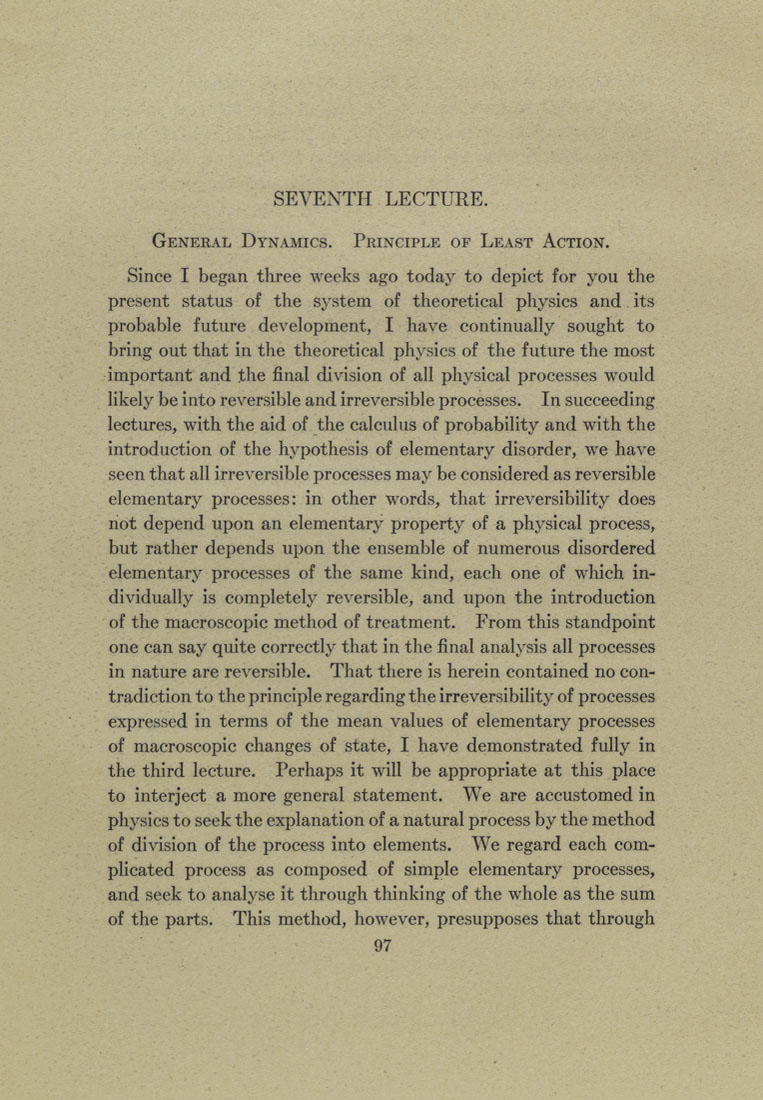SEVENTH LECTURE.
General Dynamics. Principle of Least Action.
Since I began three weeks ago today to depict for you the
present status of the system of theoretical physics and its
probable future development, I have continually sought to
bring out that in the theoretical physics of the future the most
important and the final division of all physical processes would
likely be into reversible and irreversible processes. In succeeding
lectures, with the aid of the calculus of probability and with the
introduction of the hypothesis of elementary disorder, we have
seen that all irreversible processes may be considered as reversible
elementary processes: in other words, that irreversibility does
not depend upon an elementary property of a physical process,
but rather depends upon the ensemble of numerous disordered
elementary processes of the same kind, each one of which in¬
dividually is completely reversible, and upon the introduction
of the macroscopic method of treatment. From this standpoint
one can say quite correctly that in the final analysis all processes
in nature are reversible. That there is herein contained no con¬
tradiction to the principle regarding the irreversibility of processes
expressed in terms of the mean values of elementary processes
of macroscopic changes of state, I have demonstrated fully in
the third lecture. Perhaps it will be appropriate at this place
to interject a more general statement. We are accustomed in
physics to seek the explanation of a natural process by the method
of division of the process into elements. We regard each com¬
plicated process as composed of simple elementary processes,
and seek to analyse it through thinking of the whole as the sum
of the parts. This method, however, presupposes that through
97
|








